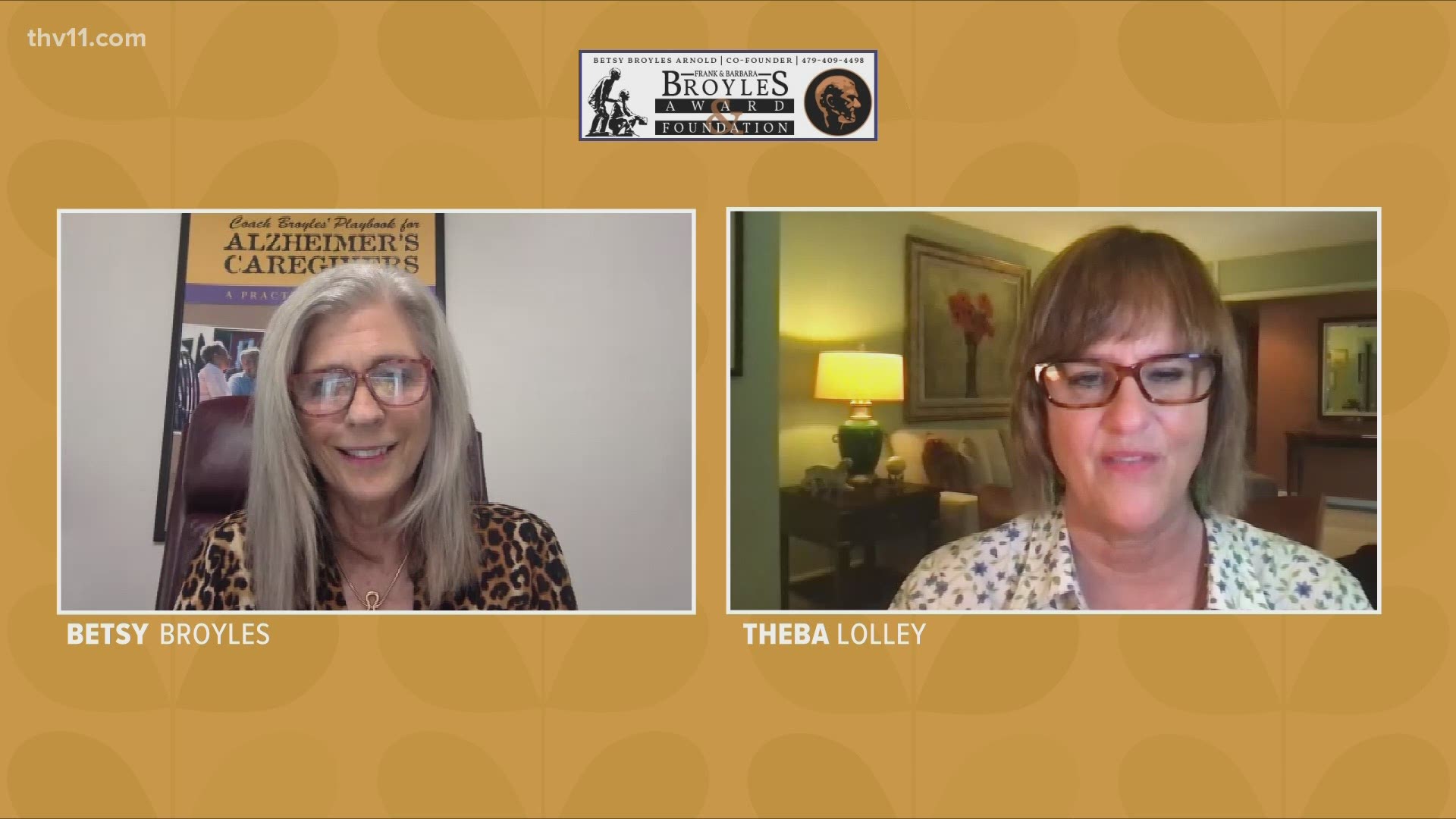LITTLE ROCK, Ark. — Betsy Broyles specializes in providing care for Alzheimer’s and dementia caregivers, and she offers counseling services through the The Broyles Foundation.
Betsy joins Theba Lolley to describe the process of explaining an Alzheimer's diagnosis to a new caregiver.
Theba poses this situation to Betsy: "I just got a diagnosis of Alzheimer’s dementia for a loved one, and I don’t know where to start or what questions to ask so I’m calling you up on the phone."
“That’s a great question because I literally get phone calls like that every day, saying I just don’t understand the disease,” says Broyles. “In the beginning I like to try to give them an idea of what it is that they’re dealing with.”
Betsy explains that it’s important that your loved one lives moment to moment to moment.
“If you think about rolling hills, when they’re on top of the hill, they understand everything go on around them, who they’re with and what they’re doing and they’re okay with it,” says Broyles. “When they slide down in the valley, you’ll see them change and in that moment they’re just unsure of maybe where they are, who they’re with or what they’re doing.”
Betsy says caregivers should be concerned about the moment that your loved one is in. You want to listen very carefully to things your loved one says because it gives you insight into where they are in that moment.
“Another really interesting thing about the disease is at it progresses, their age is regressing,” says Broyles. “From a caregiver’s standpoint you want to try to figure out where they are in this age regression because it helps you to be able to communicate with them.”
After a caregiver has a grasp on what Alzheimer’s looks like, Betsy will generally go into how to communicate with your loved one. She says you must learn how to communicate with them or you’re not going to have a good experience.
Your loved one will look to you as the caregiver for everything, so having direct eye contact, listening intently, and having positive body language are all important.
“It takes discipline so give yourself some time and when you accidentally trip back into your world when you’re with them, give grace to yourself and just find a moment to adjust," says Lolley.
Learn more about The Broyles Foundation here.

